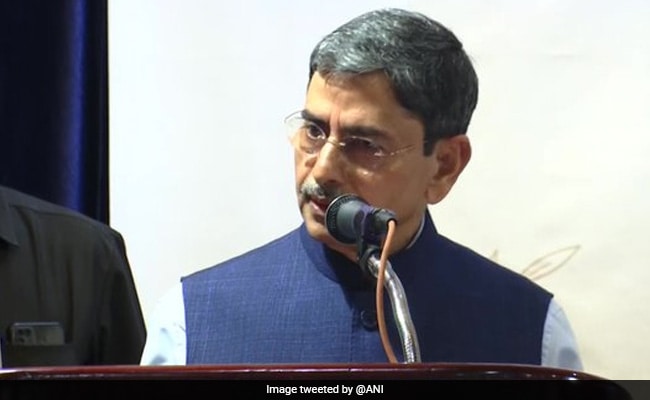
The Supreme Court on Monday asked tough questions of Tamil Nadu Governor RN Ravi, as it resumed hearing the Tamil Nadu government’s plea against delays in clearing bills. “These bills were pending since 2020. What was he doing for three years?” it asked.
The court – hearing similar pleas by the Punjab and Kerala governments – also raised a point of law – “can a Governor withhold assent on a bill without sending it back to the Assembly?”
The court’s strong observations come days after Mr Ravi returned ten bills – two of which were passed by the earlier AIADMK government. A furious Tamil Nadu Assembly then held a special session on Saturday to re-adopt all ten bills, which were sent back to the Governor for his assent.
The court this morning noted this development and said, “Assembly has passed the bills again and sent it to the Governor. Let us see what Governor does,” as it adjourned the matter till December 1.
READ | Tamil Nadu Governor Returns 10 Bills, Week After Court’s Concerns
“Once bills are re-passed, they are on the same footing as money bills,” the court pointed out.
The Tamil Nadu government has accused the BJP-appointed Governor of deliberately delaying the bills’ clearance and scuttling the state’s development by “undermining the elected administration”.
In its approach to the court, the ruling DMK said the Governor’s actions were “undermining the will of the people” by deliberately delaying bills sent for clearance and asked for a specific timeframe.
Most of the bills aim to clip powers of the Governor in appoiinting vice chancellors to state universities, in his role as Chancellor. The ruling DMK wants to make the Chief Minister as Chancellor.
In today’s hearing, there was a back-and-forth between senior advocates Abhishek Singhvi and Mukul Rohatgi (representing the Tamil Nadu government) and the Solicitor-General Tushar Mehta (arguing for Mr Ravi). “The Governor returned the bills stating ‘I withhold assent’ without giving any reason… The Governor has violated every word of the Constitution,” the former two argued.
To this, the Solicitor-General replied, “The Governor is not a mere technical supervisor.”
The court noted that Mr Ravi had assented to 162 of 181 bills presented to him.
The court also noted the Governor of any state, under Article 200, has three options – assent to bills presented to him, withhold that assent, or send it to the President of India.
“The proviso says Governor may send it to state government for reconsideration,” the court added.
READ | Governors Must Remember They Aren’t Elected Representatives: Court
“Can the Governor withhold assent on a bill without sending it back to the Assembly?” it asked.
Mr Ravi had earlier also returned the NEET Exemption Bill, after much delay, and forwarded it to the President of India only after the Assembly passed the bill again. He adopted a similar stance over a bill seeking a ban on online gaming. “Withholding bills is a courteous way of saying no…” he said.
Kerala and Punjab have also moved the Supreme Court against their respective Governors. With reference to the latter, last week the court told Governor Banwarilal Purohit he is “playing with fire”. In the Kerala plea, the court has sought responses from the centre and Governor Arif Mohammed Khan.
NDTV is now available on WhatsApp channels. Click on the link to get all the latest updates from NDTV on your chat.




